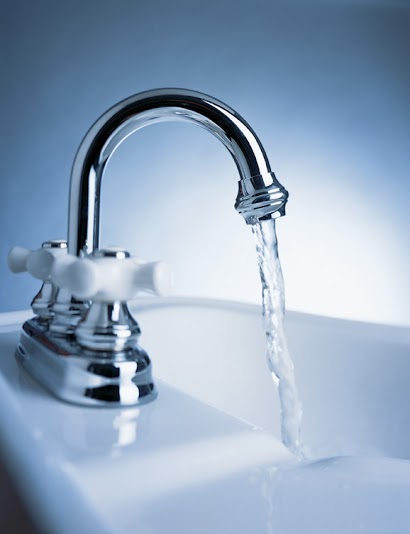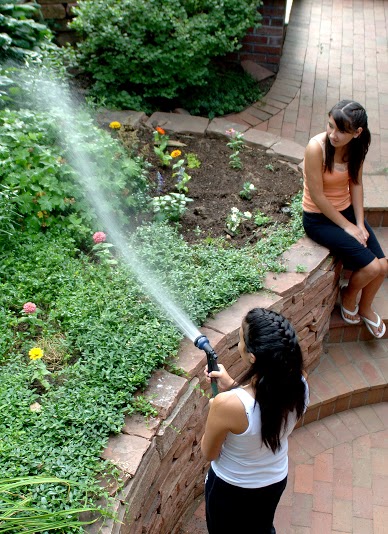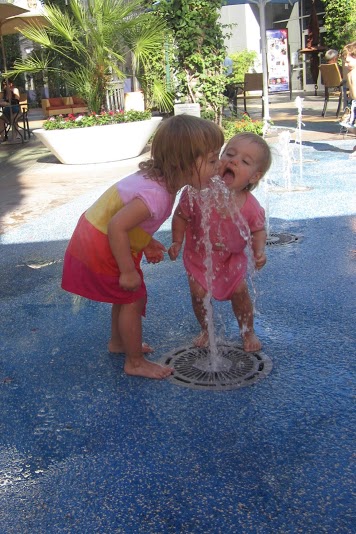What is water hardness?
Water hardness is an aesthetic quality of water, and is caused mostly by the minerals calcium and magnesium, but is classified or measured based on the level of concentration of calcium carbonate. How hardness is classified is based on the following scale:
Definition |
Calcium Carbonate Concentration |
|---|---|
| Soft Water | 0 – 60 milligrams per liter (mg/L) |
| Moderately Hard | 61 – 120 mg/L |
| Hard | 121 – 180 mg/L |
| Very Hard | 181 or above |
Is the water just hard in Arizona?
The hardness of water varies widely throughout the United States, but for the most part, the states of the southwest and upper Midwest have hard water.
In the southwest, low rainfall, hot weather, and high mineral content in the soil contribute to water hardness.
What makes water hard?
Water is often called the universal solvent, and as part of that definition, water picks up minerals as it travels many miles over rocks and through soil as it makes its way to water treatment facilities. Those minerals, mostly calcium and magnesium, are dissolved and held in solution even after going through the rigorous treatment process.
Why can't water providers remove the hardness from water?
Most conventional water treatment facilities do not have the ability to filter out the magnesium and calcium because of the high cost of equipment that can do so. However, research about water hardness and salinity issues and their treatment is ongoing, and in the future, perhaps, a relatively low cost hardness treatment methodology may be found.
How can I tell if my water is hard?
If the water that comes from your faucet leaves deposits in the tub, on your dishes, or in your coffee pot, it is probably hard water. If you get all kinds of suds from your bar of soap or laundry detergent, the water is probably soft.
How does water hardness affect my life?
The minerals in hard water can cause spots to form on dishes, or a scale to form on showerheads, drip irrigation emitters, evaporative coolers, and kitchen appliances like coffee makers. Water spotting and scaling require more attention. How fast mineral buildups occur depends on how hard the water is at your home. It’s important that you follow the manufacturer’s guidelines for hard water use in appliances. You also may want to use some descaling products and change some of your cleaning habits.
What can I do to lessen the effects of hard water in and around my home?
There are a number of things that can lessen the impact of hard water around your home. Below are several suggestions:

American Water
Works Association
- When doing the laundry: Most laundry products are detergent-based and therefore work better in hard water than soap-based products. Today’s detergents are formulated to perform over a wide range of water hardness.
According to the National Soap and Detergent Association, a powdered detergent with phosphate will perform well in hard water as will any of the liquid laundry detergents (none of the liquids contain phosphate). If a powdered detergent without phosphate is used, it is important to make sure that the detergent completely dissolves in the wash water. Regardless of the form of detergent you use, you will still need extra detergent to overcome the hardness of the water. For example, if the manufacturer calls for one cup of detergent, you may have to use a cup and a half and then evaluate the results. But remember that using too much detergent, in an effort to get more suds, can leave a residue on clothes. In general, detergents perform better in warm water. Water conditioning and detergent boosting products also are available and are especially effective in hard water. Read the labels of products and experiment to find which works best for you.
With most cleaning products, following the manufacturer’s instructions for washing in hard water will get the desired results. Most soap and detergent manufacturers have toll-free customer service numbers if you need more information. - When using the dishwasher: Hard water will probably cause more spotting and filming on your dishes. This is because the minerals in hard water are released faster when the water comes in contact with heat, such as the heating element in your hot water heater or dishwasher. Here are some things you can do to reduce spotting and filming:
Reduce the temperature of your hot water heater: The higher the temperature setting on your hot water heater, the more mineral residue will occur in the dishwasher. It is recommended that you turn the water heater down to 130 degrees, or the “vacation setting.” At this setting you should have enough hot water for your shower and you will maintain sanitary conditions in your dishwasher. For every degree or setting that you decrease your hot water heater, you decrease the amount of mineral spotting or filming on your dishware.
Detergent Selection: According to the National Soap and Detergent Association, you should start with the manufacturer’s recommended amount of detergent and increase by one tablespoon at a time until you achieve the desired cleaning/spot prevention. Read the labels of products and experiment to find which works best for you.
Rinse Agents: To remove heavy, cloudy, hard water film or spotting from dishware or glassware, you can add a commercially produced film and spot remover or use regular household white vinegar as a rinse agent. If your dishwasher does not have a dispenser, you can create your own by putting some vinegar in a cup and placing it on a dishwasher rack. If you use a film and spot remover, make sure to follow the manufacturer’s directions. If you use vinegar, the National Soap and Detergent Association recommends removing flatware or other metal items from the dishwasher.
American Water
Works Association
Before you decide which method to use, read your dishwasher operating manual to see what the manufacturer recommends for hard water use. - When using the coffeemaker: There are products on the market that will remove mineral buildup from your drip coffee maker or you can run a pot of strong vinegar water through your coffee maker on occasion. Refer to the manufacturer’s guidelines for more information.
- Maintaining the hot water heater: Decreasing the temperature of the hot water heater will reduce the amount of mineral buildup in the hot water tank, but nevertheless, mineral “scaling” in the tank will eventually reduce the energy efficiency of the heater. Therefore, it is important to follow the manufacturer’s guidelines for flushing your hot water heater.
- Cleaning tile, ceramic and metal surfaces: Mineral buildup on tile, ceramic, and metal surfaces such as showerheads, sinks, bathtubs, faucet fixtures, and swimming pools will simply require more attention to keep water spotting and filming to a minimum. With most cleaning products, following the manufacturer’s instructions will get the desired results. For heavy scale buildup on tile, ceramics, and porcelain, a pumice stone works nicely.
- Maintaining an evaporative cooler: Through the evaporation process, minerals accumulate in your evaporative cooler and in the cooler pads. If your water is hard, you may have to change your pads twice per season, depending on how often you use your cooler. If your cooler has a bleed-off valve, make sure that it is adjusted properly in order to ensure circulation of fresh water through the cooler. If the cooler does not have a bleed-off valve, you can minimize mineral buildup by completely flushing thecooler with fresh water once or twice per season. There also are commercially made products available to minimize mineral buildup in the cooler.
- Maintaining your outdoor irrigation drip system: When hard water evaporates, mineral deposits are left on irrigation emitters. Inspect your system regularly and clean clogged emitters either by scraping off the buildup or removing and soaking the emitter in a vinegar and water solution.
Will water hardness affect my garden, trees or house plants?
The high mineral content in hard water may lead to an increase in salt and mineral buildup in the soil when you water your plants, trees, or vegetables. Good drainage is important and soil additives such as gypsum, peat, and compost will be helpful. Use mulches that reduce moisture loss. Native plants will be less sensitive to mineral buildup than exotics, citrus, and vegetables. For more information, you should contact your nursery or landscape professional.
Will the minerals in hard water clog the water pipes in my home?
The calcium in your water will not build up fast enough to limit the useful life of your household plumbing. The calcium in hard water can create a natural protective coating on the inside of your pipes. If your home has lead or copper pipes or pipes with lead solder, this coating has a beneficial effect by preventing lead and copper from leaching into your home’s water supply. Mineral buildup in sink aerators may restrict water flow. Simply remove the aerator, clean it with vinegar, and replace.
Will hard water affect my health?
Experts say that the levels of calcium found in hard water are unlikely to cause any increase in kidney stone formation and pose no health problems for the general public. In fact, not drinking enough water is a major contributing factor in kidney stone formation. Persons who have recurring kidney stones, or are on a calcium restricted diet, should consult their physician concerning their diet and liquid intake.
Some people experience more skin dryness with hard water, but the majority of people will not see any change. According to dermatologists, hard water has no effect on skin disorders such as acne, eczema, dermatitis, psoriasis or seborrhea. Hard water should not cause any contact allergy reactions or interact or interfere with any topical skin medications. If you have questions, you may want to consult your dermatologist. Recent evidence suggests a relationship between higher water hardness and a lower incidence of heart disease.
For more information about health related effects of water hardness, please consult a physician.
Should I get a home water softener?

American Water
Works Association
A water softener can improve the aesthetic qualities of your household water. For example, soap products perform better in softer water. But a water softener does not improve the safety or quality of water as it relates to health. Most water softeners exchange sodium for existing calcium and magnesium in the water and therefore, increase the sodium content of the water. The sodium increase in softened water may be a concern to you. If you are on a sodium restricted diet, you may want to consult your physician.
Also, there is evidence that softened water may be corrosive to certain metallic pipe materials. Water softeners also discharge brine into a city’s wastewater system. These unnatural quantities of salts eventually find their way into the general environment.
The cost of softening water is another factor that must be taken into consideration. According to Consumer Reports, water softeners can consume from 15 to 120 gallons of water for every 1,000 gallons of water processed. The decision to purchase a home water softener is therefore one of personal preference.
If doing so we suggest you contact one of the following agencies to determine that the device you select will meet your needs.
- National Sanitation Foundation, NSF independently tests home water treatment devices. "Consumers can be confident that home water treatment devices that carry NSF certification will actually reduce the contaminants as claimed by the manufacturer on the product label. In addition, you can also be assured that the product itself is not adding harmful levels of contaminants to the water." http://www.nsf.org/
- Arizona Water Quality Association (480) 947-9850. This is a non-profit organization that specializes in secondary water treatment devices.
How to set your water softener correctly.
If you decide to purchase a water softener, the equipment must be set accordingly in regards to the hardness of the tap water. Below is a formula that can be used to convert milligrams to grains per gallon when setting the water softening the equipment. Your water provider’s annual water quality report provides hardness information in either grains per gallon and/or of milligrams per liter.
Grains Per Gallon Conversion Chart | ||
|---|---|---|
| Milligrams/liter (mg/L) Divided by 17.1 |
= Grains per Gallon | |
| Example: | 283 mg/L 17.1 |
= 16.5 Grains per Gallon |











